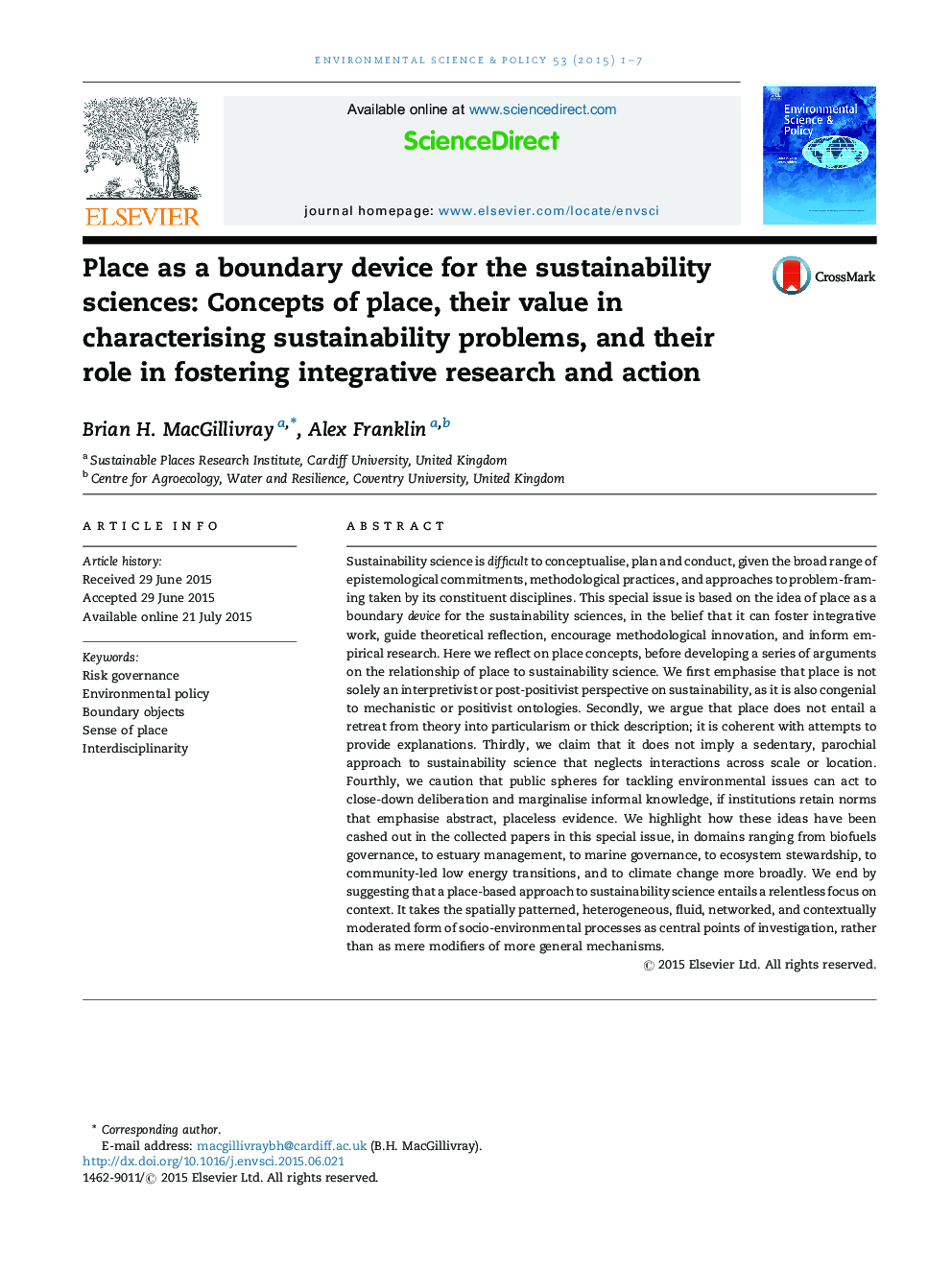| کد مقاله | کد نشریه | سال انتشار | مقاله انگلیسی | نسخه تمام متن |
|---|---|---|---|---|
| 1053466 | 946685 | 2015 | 7 صفحه PDF | دانلود رایگان |
Sustainability science is difficult to conceptualise, plan and conduct, given the broad range of epistemological commitments, methodological practices, and approaches to problem-framing taken by its constituent disciplines. This special issue is based on the idea of place as a boundary device for the sustainability sciences, in the belief that it can foster integrative work, guide theoretical reflection, encourage methodological innovation, and inform empirical research. Here we reflect on place concepts, before developing a series of arguments on the relationship of place to sustainability science. We first emphasise that place is not solely an interpretivist or post-positivist perspective on sustainability, as it is also congenial to mechanistic or positivist ontologies. Secondly, we argue that place does not entail a retreat from theory into particularism or thick description; it is coherent with attempts to provide explanations. Thirdly, we claim that it does not imply a sedentary, parochial approach to sustainability science that neglects interactions across scale or location. Fourthly, we caution that public spheres for tackling environmental issues can act to close-down deliberation and marginalise informal knowledge, if institutions retain norms that emphasise abstract, placeless evidence. We highlight how these ideas have been cashed out in the collected papers in this special issue, in domains ranging from biofuels governance, to estuary management, to marine governance, to ecosystem stewardship, to community-led low energy transitions, and to climate change more broadly. We end by suggesting that a place-based approach to sustainability science entails a relentless focus on context. It takes the spatially patterned, heterogeneous, fluid, networked, and contextually moderated form of socio-environmental processes as central points of investigation, rather than as mere modifiers of more general mechanisms.
Journal: Environmental Science & Policy - Volume 53, Part A, November 2015, Pages 1–7
